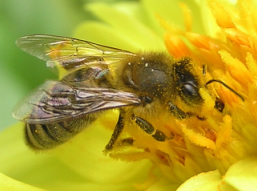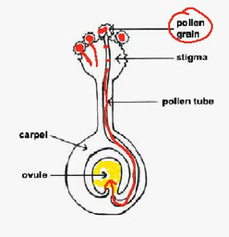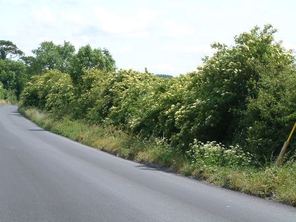|
This week's edition of Leena's Life Sciences Limelight, a column dedicated to research presentations in the life sciences on our campus, focuses on a September 19, 2013 presentation delivered by Dr. Claire Kremen, a Professor in the Department of Environmental Science, Policy and Management at the University of California, Berkeley, during an EEB Department Seminar.  Pollinating honeybee, taken from organicconnectmag.com. Pollinating honeybee, taken from organicconnectmag.com. In her presentation, “Restoring Pollinator Communities and Services in Working Landscapes” (September 19, 2013), Dr. Claire Kremen discussed the creation of a diversified farming system that involves establishing conditions conducive to the production and replenishment of pollination services and which our nation’s farms desperately need. An apologist for promoting cross-scalar vegetation diversity to restore pollinator communities and services, Dr. Kremen argued how cultivating large fields and orchards of single crops purges the breadth of soil, flowers, plants and other vegetation that in turn critically affects the subsistence of various species of native pollinators, such as wild bees. Many fruit and nut crops, Dr. Kremen noted, require pollination for production. Given that American famers bring in millions of non-native honeybees to U.S. agricultural fields every year in order to pollinate crops such as these, Dr. Kremen underscored how cultivators could draw on the pollinating power of native bees, instead of imported honeybees, for pollination of our fruit and nut crops.  Pollen lands on the stigma of a plant where it extends a pollen tube down to the ovules. Pollen lands on the stigma of a plant where it extends a pollen tube down to the ovules. This latent potential of native bees in pollinating our crops confers perhaps all the more relevance, Dr. Kremen explained, when one considers the striking increase in missing honeybee colonies on U.S. farms in recent years. While the precise mechanisms underlying the abrupt honeybee disappearances remain incompletely elucidated, Dr. Kremen noted that these mysterious disappearances do not at all epitomize a new phenomenon in agricultural history. To combat the increasing disappearances of imported honeybees at present, Dr. Kremen proposed that farmers could use the pollination services of native bees and mentioned that historically, we did not need honeybees prior to the 1980s, before which native bees supplied all the pollination services for our farms. Dr. Kremen demonstrated that native bees sometimes actually serve as more effective pollinators relative to honeybees for particular crops. Specifically, Dr. Kremen assessed pollination effectiveness as the proportion of flowers that were visited and that had at least one pollen tube reaching the ovules, and studied this trait in orchards with and without native bees. Dr. Kremen showed that when native bees are present, they are more likely to bring compatible pollen; whereas overall visitation rates are not different between the two types of orchards, Dr. Kremen revealed that fruit set (i.e. the changeover of a static ovary to a rapidly growing young fruit) is actually greater in orchards with native bees present.  Natural hedgerow, taken from www.noticenature.ie. Natural hedgerow, taken from www.noticenature.ie. Since sufficient pollination services can clearly stem from native bees alone, Dr. Kremen asked, “Do we need honeybees given all these potential benefits we can get from native bees?” In response to this question, Dr. Kremen mentioned that to actually maximize native bee pollination, alterations to current farms must occur in order to foster and assist the pollination activities of native bees. Dr. Kremen discussed how we know that nesting sites, for example, and floral resources are distributed both in the farming landscape itself and in the natural habitat. The alterations to current farms that thus must take place include implementing multiple cropping practices and providing adequate nearby natural habitat including pastures, prairies, fallow and wooded areas, and wildflower meadows for the native bees. Based on a global quantitative synthesis of how landscape composition and configuration affects native bees, Dr. Kremen found that hedgerows positively influenced population persistence. Thus the introduction of hedgerows around agricultural fields or within the fields, Dr. Kremen revealed, would especially encourage and support pollination by native bees. Advancing vegetation diversity to reestablish viable pollinator services and diminishing herbicide use, which would lead to more diversity in the landscape, Dr. Kremen showed, unearths some interesting relationships with other ecosystem services. For example, reforming our agricultural system through implementing diversified farming systems everywhere promises to not only enhance pollination activity by native species but also to foster regulation of soil quality and water and nutrient cycles, amongst other crucial ecosystem services, which in turn can help us institute a more productive and sustainable agroecosystem. In the realm of diversified farming systems, Dr. Kremen explained how practices involving multi-cropping, crop rotation, nature reserves, and riparian corridors all work to positively impact pollination. The establishment of a diversified farming system, Dr. Kremen concluded, would not only support the pollination activities of native bees, but in so doing, would also provide an important helper to farms vis-à-vis the cultivation of many agricultural crops in light of growing commercial honeybee disappearances and concomitantly improve ecosystem service sustainability. About the Blogger Leena Shah is a sophomore in the College of Literature, Science and the Arts at the University of Michigan concentrating in International Studies with a focus on Global Environment and Health. Her literary interests include religion, slavery, and the politics of knowledge production.
0 Comments
Leave a Reply. |
WELCOME, UMICH SCIENTISTAS!
CAMPUS PICS
WHAT'S NEWUPCOMING EVENTSPAST POSTS
October 2022
SORT BY TAG |
The Scientista Foundation, Inc. All Rights Reserved © 2011-2021 | Based in NY | [email protected]
The Network for Pre-Professional Women in Science and Engineering
The Scientista Foundation is a registered 501(c)(3) -- Donate!
The Network for Pre-Professional Women in Science and Engineering
The Scientista Foundation is a registered 501(c)(3) -- Donate!


 RSS Feed
RSS Feed